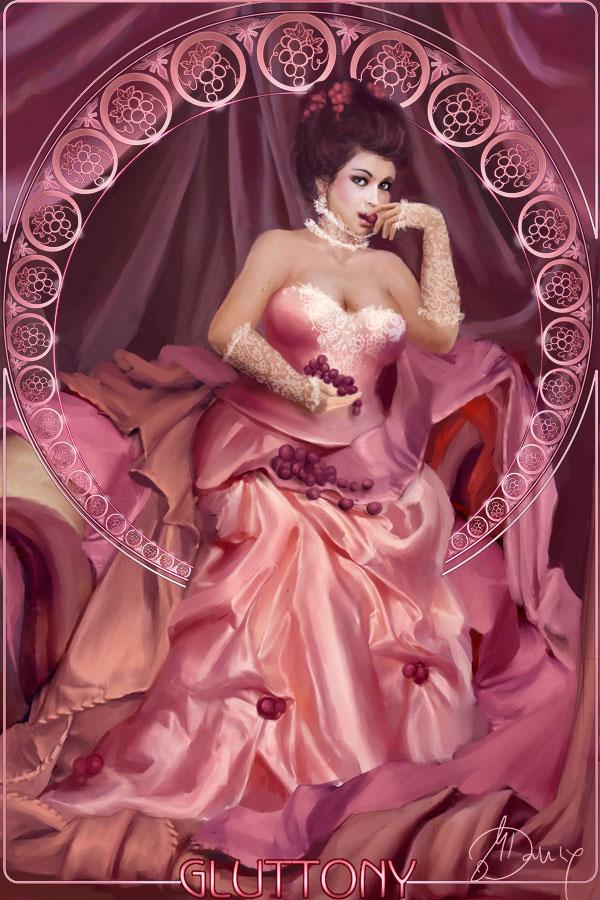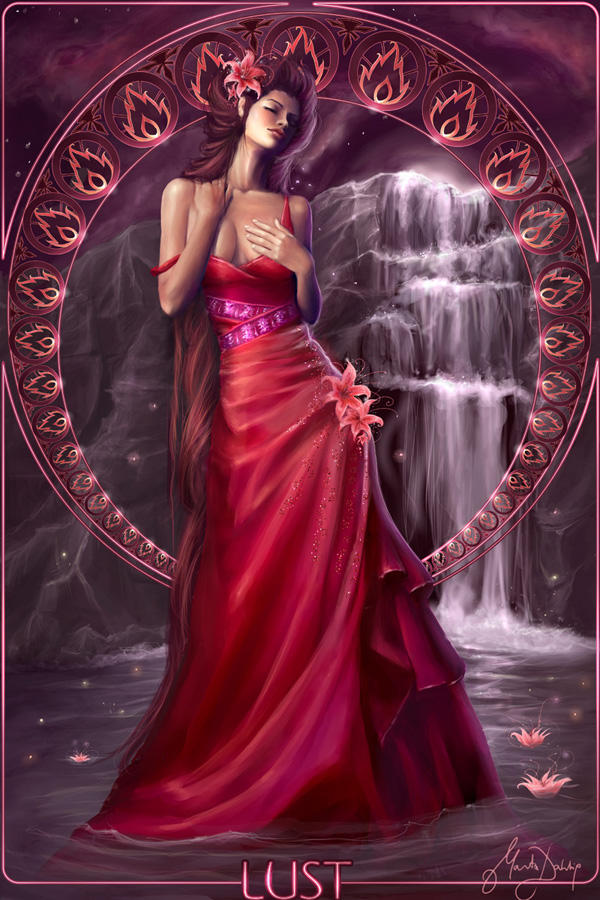Mything Shakespeare
Several things can be said about Shakespeare being mythological. Clearly, he refers to Ovid’s Metamorphoses in several shows. My mission through this paper is to explore the prominence of the seven deadly sins in Shakespeare and in Ovid’s Metamorphoses.
 The first sin I explored was gluttony, which can be translated as overindulgence. King Lear at the beginning of the show perfectly describes an overindulgent person. He has to have the most of everything to be happy. Lear claims 50 knights is better than 25 and is asked by Goneril why he even needs one and he snaps at her. A character from mythology that clearly rings in my head is Actaeon, a boastful hunter who happens to stumble across Artemis bathing. He doesn’t look away but overindulges and watches for a bit, she then notices him and turns him into a stag and he is then eaten by his own hounds.
The first sin I explored was gluttony, which can be translated as overindulgence. King Lear at the beginning of the show perfectly describes an overindulgent person. He has to have the most of everything to be happy. Lear claims 50 knights is better than 25 and is asked by Goneril why he even needs one and he snaps at her. A character from mythology that clearly rings in my head is Actaeon, a boastful hunter who happens to stumble across Artemis bathing. He doesn’t look away but overindulges and watches for a bit, she then notices him and turns him into a stag and he is then eaten by his own hounds.  The Rape of Lucrece is a lustful piece by Shakespeare. Tarquin reminds me clearly of Jove, who is obviously the most lustful character in mythology. Jove has lusted after Io, Callisto, Europa, and Semele as well as many others. Due to Jove’s lust each of these women suffered a fate. Io was turned into a cow then became a goddess. Callisto was turned into a bear and killed now she has a home in the stars. Europa was tricked by Jove, he turned himself into a beautiful white bull and she got onto his back where he disappeared into the sea. Semele was conned by Hera to ask Jove to show himself in all his splendour resulting in her untimely death. Yes, Jove is a picture perfect example of lust.
The Rape of Lucrece is a lustful piece by Shakespeare. Tarquin reminds me clearly of Jove, who is obviously the most lustful character in mythology. Jove has lusted after Io, Callisto, Europa, and Semele as well as many others. Due to Jove’s lust each of these women suffered a fate. Io was turned into a cow then became a goddess. Callisto was turned into a bear and killed now she has a home in the stars. Europa was tricked by Jove, he turned himself into a beautiful white bull and she got onto his back where he disappeared into the sea. Semele was conned by Hera to ask Jove to show himself in all his splendour resulting in her untimely death. Yes, Jove is a picture perfect example of lust. Pride is the next sin I researched. Shakespeare’s Antony and Cleopatra defines pride clearly. I see Cleopatra as a bit of an actress she is described as a woman of “infinite variety”. Every actor or actress I have ever met has had a large element of pride about them which is why I chose this show to describe pride. Cleopatra is so full of pride she doesn’t want to kill herself in a way that she would be made an ugly corpse. Among the most obvious of prideful characters in mythology would be Narcissus. A man who loved himself so much he died looking at his own reflection. Another prideful mythological character would be Phaethon. He takes his father’s chariot convinced he would be able to ride through the heavens gracefully. “Too late: with his young body, Phaethon has leaped into the chariot: he takes his place with pride. Rejoicing, he holds fast the reins-and thanks his hesitating father” (Mandelbaum 42). Unfortunately Phaethon’s pride gets the better of him, and he killed is by his impulsive actions.
 Greed is abundant in many of Shakespeare’s works. The character that I have found most greedy would be Tybalt from Romeo and Juliet. He wants his cousin to himself so much that he becomes responsible for Mercutio’s death which leads to his own death by Romeo’s hand. Another way to look at greed from the mythological stand point is the story of Mars, Venus, Vulcan, and the Sun. The adultery committed by Mars and Venus can be defined as greed. Their husbands and wives are not good enough; they need more to fulfill their desires by their own greed.
Greed is abundant in many of Shakespeare’s works. The character that I have found most greedy would be Tybalt from Romeo and Juliet. He wants his cousin to himself so much that he becomes responsible for Mercutio’s death which leads to his own death by Romeo’s hand. Another way to look at greed from the mythological stand point is the story of Mars, Venus, Vulcan, and the Sun. The adultery committed by Mars and Venus can be defined as greed. Their husbands and wives are not good enough; they need more to fulfill their desires by their own greed. I found while working with Othello that the most abundant sin in the play is envy. Iago is the poster child of this sin. He is so envious of Othello that he will stop at nothing until he is ruined. As far as mythology goes, characters that I find quite envious are The Pierides who are quite envious of the Muses. Now anyone knows that you can’t ever be as good as a Muse and The Pierides challenge them to a singing competition. They do not win and envy gets the best of them.
Wrath I honestly can say is abundant in each work of Shakespeare; anger is a natural emotion that happens every day in each of us. Since we are Shakespeare’s mind babies, it’s too hard to narrow wrath down to just a work or two. In mythology the most obvious wrathful character to me is Juno. Every poor girl that gets involved with Jove has Juno’s wrath upon them shortly after.
The last sin I encountered was sloth. I had a very hard time determining which of Shakespeare’s works defined this best. I came down to the conclusion that most of the characters in A Midsummer’s Night’s Dream are quite lazy, minus Puck. This is stretching sloth a bit, but when I think of the characters I think of spoiled, rich people who have nothing better to do with their time than whine, or play tricks on each other. In mythology, the most slothful character I can think of is Argus. He is a big, fat lazy giant who falls asleep to a story told by Mercury to get Io away from his watchful eyes. Sloth gets the better of him.
The abundance of sin is without question abundant in mythology and Shakespeare. In truth, it is all just mythology. The farther back you go, whether it’s to the seven deadly sins, Ovid’s Metamorphoses, or Shakespeare’s era, the more mythological you are. Ovid’s Metamorphoses and Shakespeare’s works are just stories but they are “sacred stories” hence, “true stories”. We emulate these two creators every day, as to say, nothing ever dies… it only changes.
Works Cited
Mandelbaum, A. (1993). The Metamorphoses of Ovid. Orlando: Harcourt, Inc
Cotterell, A., Storm R., (1999). The Illustrated Encyclopedia of World Mythology. New York, NY: Metro Books





No comments:
Post a Comment